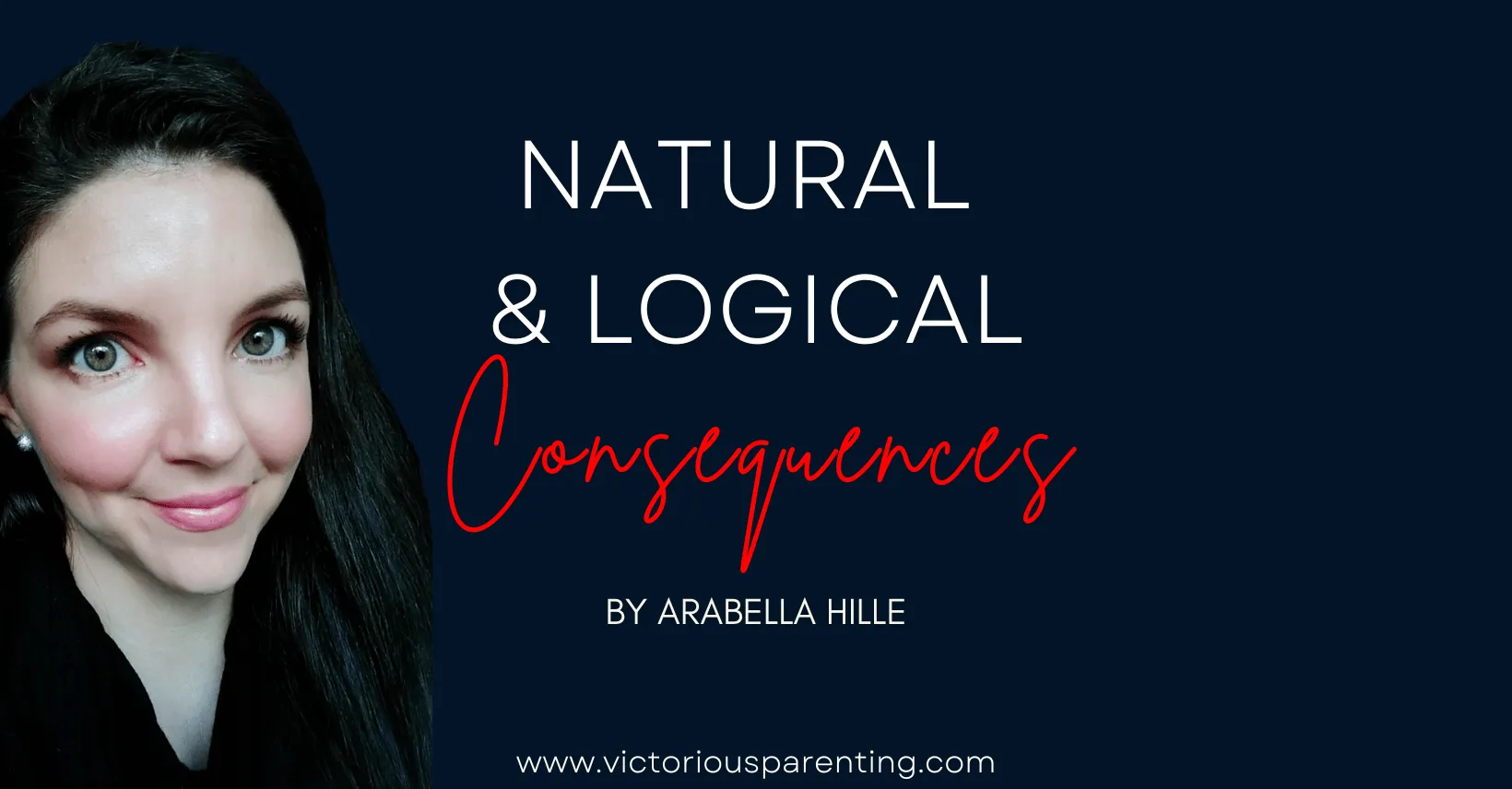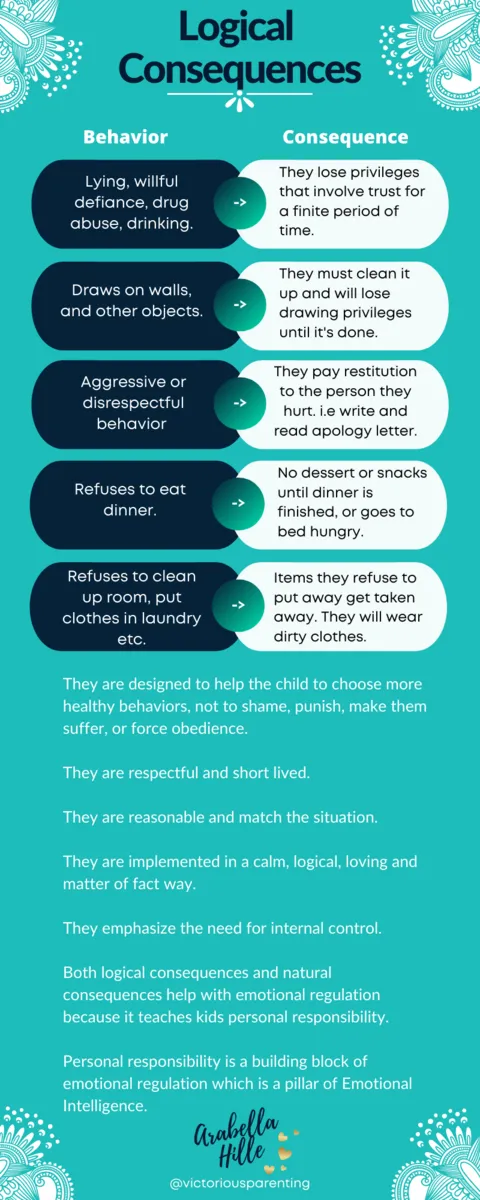The question I get asked the most is, "how do you come up with consequences for misbehavior in children." The best way is to use my formula in the infographic at the bottom of this post to develop some of your own. I know this can be difficult without examples, so this post is designed to help you understand what logical and natural consequences are with examples of each.
These lists aren't exhaustive. They are designed to show you the patterns behind each type of consequence. Read through them several times until you start to see the patterns and clearly understand the differences between natural and logical consequences. This will help you come up with some of your own.
This post is the second in a series about this topic. If you haven't read my first post about enforcing consequences for misbehavior read it by Clicking Here
Natural consequences are the naturally occurring consequences of a child's actions. For example, if a child doesn't bring a coat to school on a cold day, they may feel cold and uncomfortable.
In this case, there is nothing you need to do because the natural consequences of their actions taught them a valuable lesson. Now they have experienced being cold without a coat, next time they will be more likely to wear one to avoid the negative consequence of being cold.
Logical consequences, on the other hand, are consequences that are directly related to the misbehavior and are implemented consistently when the misbehavior occurs.
Logical consequences are intended to teach children about the consequences of their actions and help them understand cause and effect. They are used when natural consequences are not enough to guide the child to choosing more appropriate behaviors. They are used for redirection and guidance, not for punishment. Discipline means to guide and teach, and that is the goal of setting and enforcing logical consequences.
Here are 5 examples of natural consequences:
- If a child leaves their coat at school, they may feel cold on the walk home.
- If a child does not eat their dinner, they may feel hungry later.
- If a child does not brush their teeth, they may get a cavity.
- If a child does not bring their homework to school, they may receive a lower grade.
- If a child breaks a toy, they will no longer have that toy to play with.
Here are 5 examples of logical consequences:
- If a child breaks a family rule, they may lose a privilege, such as going to a friend's house or having screen time.
- If a child is disrespectful to a sibling, they may have to do an extra chore to show that they are sorry.
- If a child is consistently late for school, they may have to go to bed earlier to ensure they are on time.
- If a child does not clean up their toys, they may not be able to use them until they are put away properly.
- If a child is consistently rude to others, they may have to spend time alone to think about their behavior and how it affects others.
It's important to consider both natural and logical consequences when disciplining children. Natural consequences can often be the most effective, as they allow children to experience the natural consequences of their actions and learn from them.
Logical consequences can also be useful in teaching children about cause and effect and helping them understand the consequences of their actions. they are intended to guide children by highlighting the error in their judgment and replacing it with a more appropriate behavior that serves them and the other around them well.
An important lesson to teach children is that not everyone on a team can play the same position. As a family, you are a team, but there are different roles for each team member. Encourage teamwork and keep the structure organized to create safety in a reliably consistent household
Here are 5 additional examples of logical consequences:
- If a child refuses to do their homework, they may not be allowed to participate in a fun activity until it is completed.
- If a child is constantly interrupting others, they may have to sit out of group activities for a set period of time.
- If a child is not following class rules, they may have to stay after school to complete a reflection on their behavior.
- If a child is not following household rules, they may have to do additional chores to show that they are willing to follow the rules.
- If a child is not respecting other people's property, they may have to pay for any damages out of their allowance.
As you can see, none of these consequences involve yelling or any kind of physical punishment. When you have set a foundation for trust and respect, have clear house rules, and rely on natural and logical consequences, there is no need for any kind of physical altercation between you and your child.
This makes way for a more peaceful home life and a stronger bond between you and your child. Access my formula for coming up with consequences of your own via the infographic posted below.
If you wish to learn more about relational discipline, check out my book on the topic titled "The Ultimate Guide to Disciplining Without Damage for Every Age." Say goodbye to power struggles and hello to cooperation with my easy-to-follow guidance.
My eBook is packed with practical tips and strategies for implementing discipline that is kind, fair, and effective without causing harm to your child and to help you become Victorious in your Parenting!
I'm Arabella Hille, mother, former teacher, parenting educator, author of the best-selling Ultimate Parenting Guide series, and founder of Victorious Parenting. My mission is to strengthen families through holistic, easy-to-apply solutions that work long-term. So that your bond, love, and growth will positively affect all that witness it. That’s how we make the future a better place than we found it. It starts at home with parent and child.




